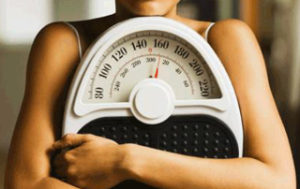
Your perfect weight is an individual expression of being in harmony with your soul. Ideals of beauty change through time and among cultures, but what is best for each of us is a unique matter.
While obesity is a serious health issue that is tied to various diseases, the idea of optimal body weight can also be tied to a feeling of being accepted by others.
A trip to an art museum immediately brings to light that different cultures at different times have had very different standards of beauty—from plump Rubenesque figures to the hour-glass shape of the Gibson Girl to the more boyish figure of the Flapper or 60s Twiggy eras.
To not get caught in the vicissitudes of popular culture and enjoy the weight that is best for you comes down to feeling connected to your body—feeling vital and energetic. Your perfect body weight supports this experience of vitality.
Some may naturally feel best with a thinner frame, especially if they have a hotter constitution, while others who tend toward feeling cold do better with more body fat to keep warm and grounded. Some people need more muscle tone because they require a stronger structure, and others need more flexibility to combat a tendency toward stiffness.
Feel for yourself what makes sense for you. Your body is an indivisible twin of your mind, and when mind and body work together, there is clearer pathway for a joyful experience of life. This is the functional approach to body weight.
A dysfunctional approach is trying to meet an external ideal–especially today in the West, with the widespread presence of extremely thin fashion models (many who reportedly struggle with bulimia and other health troubles including digestive difficulties and ceasing of menstruation).
We may judge ourselves because we see our body weight in a certain way. We may have unresolved issues of self-worth or self-confidence, and our weight on some level is an expression of our level of comfort with ourselves.
Whenever you have a critical thought about your body weight, try asking yourself: “What unresolved issues do I have in my life? How can I feel better?”
It is true that eating is often an emotional activity—we sometimes seek to satisfy our emotional needs and resolve emotional knots through food. In this case, it’s not about the food. So we can look to what satisfies us on a deeper level, makes us feel self-love and self-respect—makes us feel connected.
It’s also true that healthy eating and exercise habits promote your unique perfect weight. It’s an interesting phenomenon that the more nutritious food that you eat, the more you want to eat nutritious food. The more movement you engage in, the more you want to move.
The body wants more of what helps it feel good. The key word here is “more”—vs. deprivation or restriction. So instead of trying to eat less sugar, aim to eat more greens. Instead of sitting less, look to walking more. Focus on the “more” of the healthy habits rather than on the “less” of the unhealthy habits.
When you do more of what is good for you, you’ll naturally want less of the things that don’t support your wellness in body and mind. When you eat better, you’ll naturally have more energy for activity and feel better in your body.
When you feel vital and connected, you are in harmony with your soul.





















